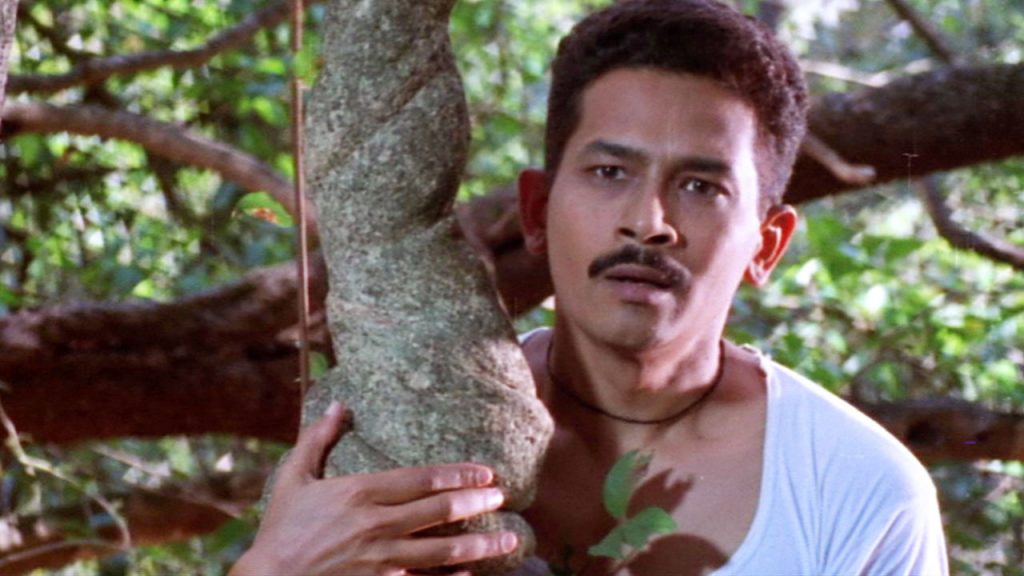Following the success of Shwaas, Marathi Cinema now again has another film to cheer about – Devrai. The film, dealing with schizophrenia, has been having a comfortable run at the box-office for four weeks now and is enjoying high critical acclaim as well from both the film critics as well as lay audiences. In fact, Devrai has outperformed big Hindi films like Karam and Bewafaa in its per screen capital during the same period and deservedly so.
Incidentally, both Shwaas and Devrai deal with medical problems and are based in and around hospitals in Pune, but whereas Shwaas aimed more to pull at your heartstrings, Devrai is the more mature, sensitive film. Directed by Sumitra Bhave and Sunil Sukhtankar, known best for their earlier films, also highly acclaimed – Doghi and Vaastupurush, the film has been produced by the Schizophrenia Awareness Association, and the KS Wani Memorial Trust, Dhule. Schizophrenia has largely been neglected on the Indian screen and the filmmakers deserve kudos for tackling it sensibly and sensitively. To quote one of the Directors, Sumitra Bhave, “We chose this concept because we wanted to dispel the myths about schizophrenia and give it a scientific reasoning. It is easy to accept a shaaririk ailment but not a mental disorder.”
In Devrai, we see that Sesh (Atul Kulkarni) has been brought to Pune by his sister, Seena (Sonali Kulkarni), from their small village off the Konkan Coast to take care of his erratic behaviour. Seena’s husband (Tushar Dalvi) is not too keen to keep Shesh with them but has to put up with it. In Pune he has a major outburst at a party and is taken to hospital where he is diagnosed as a neglected Schizophrenic. Through Seena, we get a glimpse of Shesh’s past as we try to see why he has become the way he is. A reserved boy, he was at ease whenever surrounded by nature or with his cousin Kalyani. As the two grew up, he fell for Kalyani (Devika Daftardar) but his mother nipped this forbidden romance in the bud by sending Kalyani away. His mother dies and Shesh’s frustrations pile up at not being able to continue his studies and do research on Devrai – ‘the Sacred Grove’. His consequent outbursts are seen as bouts of madness. The film explores the consequences of schizophrenia not just on Shesh but those around him as well and the latter half of the film traces his recovery.
Devrai scores highly is in its treatment. What could have been a loud, over-dramatic, film is in fact a subtle, well-layered film handled most intelligently as it explores schizophrenia not just on the person suffering from it but also its effects on those around him. It is obvious much research has painstakingly gone into the film. In fact, Bhave mentioned that several discussions and meetings with eminent psychiatrists were held besides observing and interacting with the patients and their kin. And the filmmakers have scored in successfully translating this information into the filmic medium.
A large part of the success of the film should go to Atul Kulkarni. He is simply brilliant as Shesh. Whether it is his outburst at the party, or his inability to fathom the hallucinations he is going through when he locks himself in the bathroom; or tries to explain what Devrai is in the discussion group; him initially responding to the music and finally opening up and dancing with gay abandon at the Day Care Institute – he is spot on, never hitting a false note once. Sonali Kulkarni at the other end is inconsistent – often caught ‘acting’ particularly with her dialogue sequences but she has her moments of strength like her breakdown when she tries to make sense of what is happening around her. Devika Daftardar makes an extremely strong impact as Kalyani. Tushar Dalvi cannot do much with a thankless, underdeveloped role and Ashwin Chitale, the boy from Shwaas, is wasted in a small role as Tushar and Sonali’s son.
On the flip side, the resolution is unsatisfactory and contrived. When Shesh expresses his desire to go back to the village, his sister approaches Kalyani to accompany him – the same cousin who was thought to be the cause of his problem and who was never allowed to meet him in hospital, the same woman who had been driven out of the village house; the lonely widow who has now built herself a life in Pune after a long struggle and is asked to give it all up because Shesh needs her. As it is Kalyani was forgotten by the screenplay for quite sometime and conveniently brought back and given a hurried moment to have to herself for this resolution.
Technically, the film is adequate with special mention of Debu Deodhar’s evocative photography.
Devrai has won several awards since its release. What is heartening is that it has proved that a good-quality film, sincerely made, always finds its audience. What’s even more heartening is that the proceeds of the film go to the Schizophrenia Awareness Association, a trust that is working towards eradicating misconceptions regarding the illness and creating support groups for patients with day care centers and special training.
Marathi, Drama, Color


